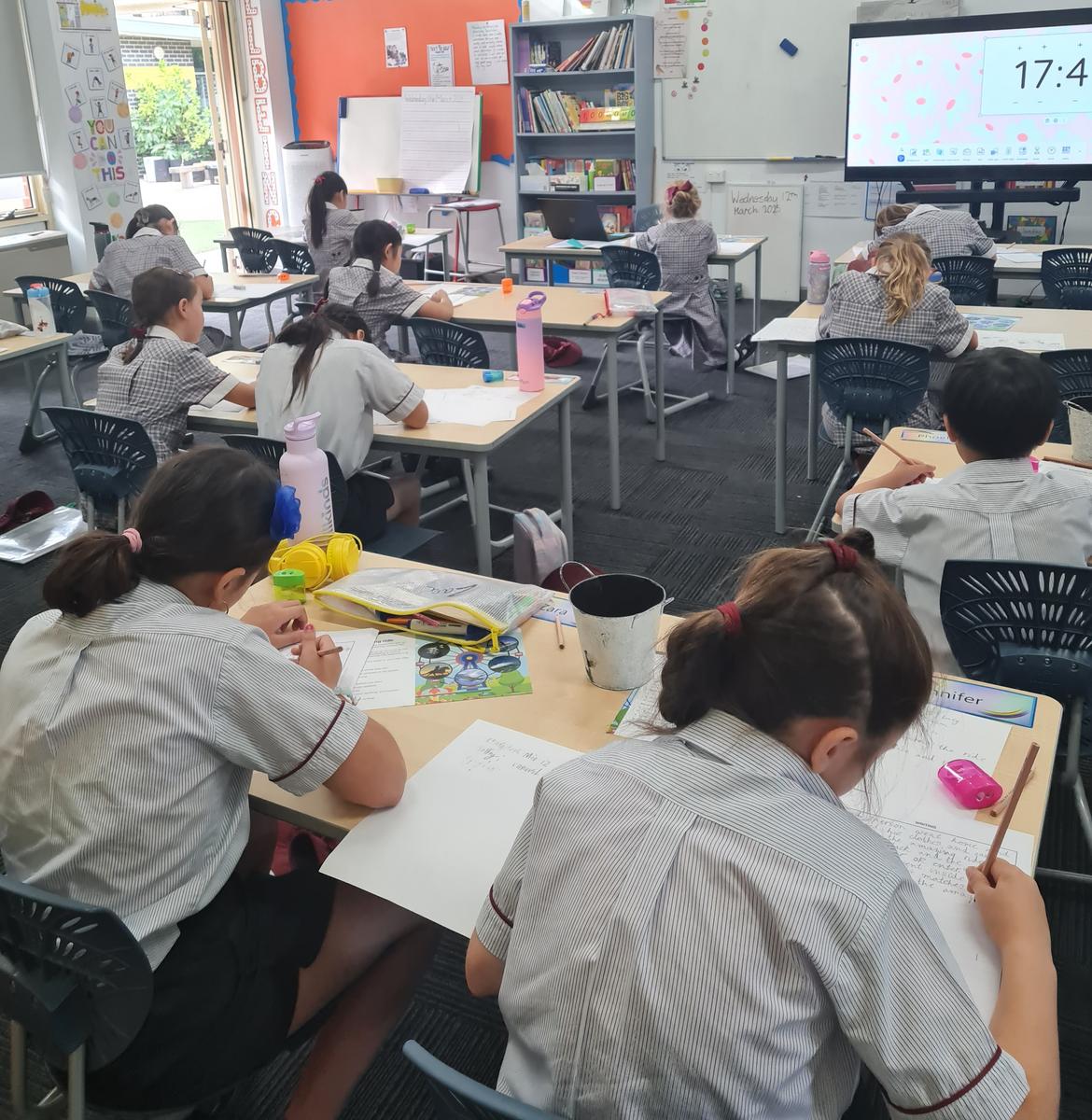Learning and Teaching
Helen Varthalis - Learning and Teaching Leader and Learning Diversity Leader

Learning and Teaching
Helen Varthalis - Learning and Teaching Leader and Learning Diversity Leader


Recently our Year 3’s and 5’s completed NAPLAN testing. NAPLAN (National Assessment Program – Literacy and Numeracy) is an annual standardised testing program in Australia for students in years 3, 5, 7, and 9. It assesses students' skills in literacy and numeracy, including reading, writing, language conventions (spelling, grammar, and punctuation), and numeracy. The results help provide a snapshot of students' academic progress and are used by schools, educators, and policymakers to identify areas of improvement and inform educational strategies.
We started with the writing test last Wednesday. The students were required to write a narrative piece. Having been explicitly taught how to write narratives, helped the students in approaching the task with confidence. We are proud of the students' effort and positivity they showed, not only during the writing test but all the NAPLAN tests. We look forward to returning to our usual learning schedule….but wait…..swimming starts next week!


Mala Ferdinando
Fun: A vital ingredient for building your child's vocabulary
Welcome to another Speech Box for 2025. This Speech Box presents research showing that children learn how to communicate best when engaging in enjoyable and longer interactions with their caregivers. In childhood, learning goes hand-in-hand with play. Feel free to include it in your next school newsletter.
Fun: A vital ingredient for building your child's vocabulary
Research has shown that children learn how to communicate best when engaging in enjoyable and longer interactions with their caregivers. In childhood, learning goes hand-in- hand with play.
Children are more likely to learn vocabulary that relates to their interests and curiosities. Having fun with your child has the potential to significantly improve your child’s interactions and communication skills. After you discover what excites your child, here is how you can incorporate these interests into your interactions:
Fun encourages an interaction to have more ‘turns’, or back-and-forth exchanges, which creates more opportunities for vocabulary learning. When you tune into your child’s interests and curiosities, research shows that language learning will flourish.
On Monday, the 2 week intensive swimming program at the Richmond Pool begins for years 3-6 students. The students will participate in daily half hour lessons in small groups with a qualified swimming instructor. Swimming lessons are a fantastic way to develop an essential life skill while promoting physical fitness and water safety. Beyond the physical benefits, swimming fosters confidence and teaches perseverance as students progress through different swimming techniques and it also instills important water safety skills. If you are yet to complete the permission form via nForma, please do so.
Home readng information session for P-2 parents: Week 9 - Wednesday 26/3
If at any time you would like to chat about the learning at Trinity, or you have any questions or concerns about your child's learning, please do not hesitate to see your child's teacher Mr Ru or myself.
Ms Helen Varthalis- Learning and Teaching Leader and Learning Diversity Leader